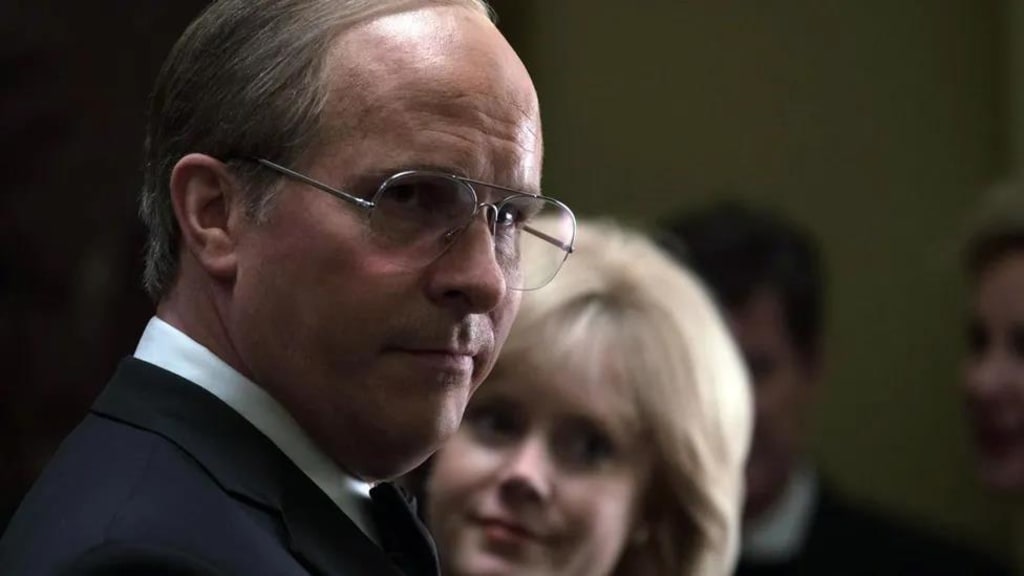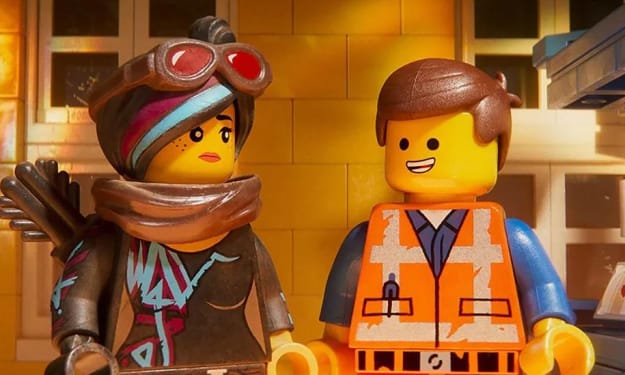Film review: Vice
The Big Short director takes on Dick Cheney – a cynical and methodically researched film that isn’t pulling any punches, but ultimately, isn’t good enough

Adam McKay made his name by directing Anchorman, Step Brothers, and other comedies in which Will Ferrell swears loudly and damages things, but he has since become one of the US’s most serious film-makers. Not serious in the sense of being ponderous or obscure, I hasten to add, but serious in his engagement with complex current affairs. The big change came with 2015’s The Big Short, an Oscar-winning docudrama which attempted to explain the machinations behind the 2007-2008 financial crisis, while attempting to get some laughs. McKay’s follow-up is Vice, a film which asks how US politics reached today’s surreal state. Its two-word answer: Dick Cheney.
Vice employs much of the same postmodern gimmickry as The Big Short: there are fantasy sequences, fourth wall-breaking monologues, ironic voiceovers and even a burst of cod-Shakespearean dialogue. But it’s more focused and engrossing than McKay’s last film because it concentrates on the life of one intriguing, almost legendary man. First seen as a brawling, drink-driving college drop-out in Wyoming in 1963, Cheney (Christian Bale) goes on to be an assistant to Donald “Rummy” Rumsfeld (Steve Carell, a bit too Steve Carell-ish), then the White House chief of staff, then a congressman, then the CEO of an oil company, and then, eventually, a vice-president who does much of the decision-making for George W Bush (Sam Rockwell), another former party animal made good. Along the way, Cheney gets fatter and balder, thus allowing Bale to perform another of his trademark transformations and for the make-up department to do some miraculous work. You soon stop noticing that Bale is buried under layers of latex and accept that he has slowly but surely turned into an enormous egg with glasses perched on the top.
You have to admit that this cynical and methodically researched film isn’t pulling any punches
As you would expect from a film by the director of Anchorman, Vice does plenty of lampooning of male stupidity and over-confidence: Rockwell is especially entertaining as a goofy Dubya, pathetically grateful to have his authority lifted from his shoulders. What is most striking about the project, though, is its sustained volcanic rage. Just when you think you could be watching a broad Saturday Night Live sketch, McKay puts in a clip of Cambodian villagers being incinerated by US bombs or Afghan towns being reduced to dust. Cheney and his cohorts are not cartoon characters, he insists, they are confidence tricksters, torturers, mass murderers, despoilers of the environment and would-be dictators. Some people who watch Vice (or refuse to watch it) will denounce it as liberal propaganda: McKay is shrewd enough to include a joke about this happening in the end credits. But whatever your political leanings, you have to admit that this cynical and methodically researched film isn’t pulling any punches.
Whether those punches connect with their target is another matter. A running gag in Vice is that Cheney has heart attacks so regularly that he comes to see them as a mild inconvenience. But what was in Cheney’s heart, metaphorically speaking? What was going on in the brain behind that fleshy face? In one scene the young Cheney asks Rumsfeld, “What do we believe?” Rumsfeld’s response is a gale of diabolical laughter. But it is a fair question. What does Cheney believe? As a congressman, he is shown voting for every bill which will make the world a crueller, more polluted place. As a vice-president, he nods his approval of “extraordinary rendition” and “enhanced interrogation”, both the phrases and the horrors they signify. But, frustratingly, we aren’t shown why he makes those decisions.
Early on, Cheney is a befuddled lunk who does whatever he is told. He could be related to Forrest Gump, or to Peter Sellers’ Chance, the gardener in Being There: someone who isn’t too bright but who has a knack of getting close to the powerful. And yet, at some point this “so-so student and mediocre athlete”, as the narrator calls him, makes the leap from doughy sidekick to Machiavellian ruler. McKay doesn’t pinpoint how, or why, that happened. An opening caption complains that it is hard to make a biopic of someone so “secretive”, but that “we did our best”. Ultimately, that wasn’t quite good enough.
Vice comes to reveal the limitations of McKay’s flashy and splashy brand of satirical non-fiction
McKay is more confident in characterising Cheney’s wife Lynne. Played by an under-used yet awards-worthy Amy Adams, this all-American Lady Macbeth vibrates with bitterness and determination. Driven by her loathing of her violent, alcoholic father, it is she who pushes Cheney to sober up and make something of himself, and it is she who has the charisma, unlike him, to win over rural voters and Washington insiders. We just about understand her and then she disappears from the film. As for her husband, he doesn’t seem to be motivated by any obvious patriotism, ambition or greed (apart from his greed for Danish pastries). As much as we might enjoy Bale’s astute impersonation – the gruff voice of Bruce Wayne in The Dark Knight, the quiet sociopathy of Patrick Bateman in American Psycho – we don’t get to know him.
Vice, for all its wit and flair, comes to reveal the limitations of McKay’s flashy and splashy brand of satirical non-fiction. He likes to zip through the documented facts and figures, which is commendable enough, but at some stage a dramatist has to stop and do some dramatising. They have to examine a character’s emotions and actions intimately, and McKay just isn’t willing to get up close and personal. Maybe he loathes Cheney too much to humanise him. Maybe there was simply too much material for him to cover. Towards the end of Vice, the film loses all narrative structure and becomes a bullet-pointed list of crimes and outrages. It’s still angry, still educational and still clever in many ways. But it’s less of a work of art than a jazzed-up Wikipedia entry.
About the Creator
Sue Torres
Is there any other reason to live to change the world?






Comments
There are no comments for this story
Be the first to respond and start the conversation.